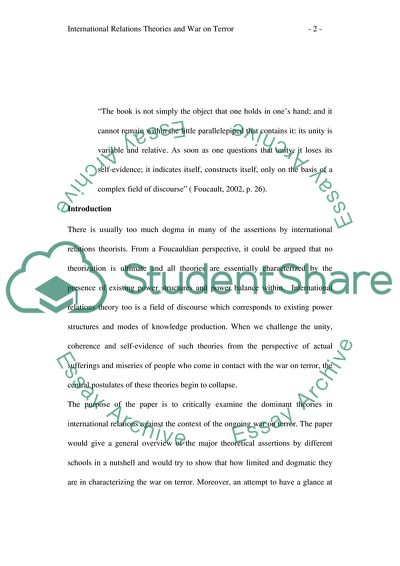Cite this document
(International Relations Theories and War on Terror Term Paper - 1, n.d.)
International Relations Theories and War on Terror Term Paper - 1. https://studentshare.org/military/1750852-theories-surrounding-the-war-on-terrorism-shouldnt-be-so-be-complicated-critical-analysis-paper
International Relations Theories and War on Terror Term Paper - 1. https://studentshare.org/military/1750852-theories-surrounding-the-war-on-terrorism-shouldnt-be-so-be-complicated-critical-analysis-paper
(International Relations Theories and War on Terror Term Paper - 1)
International Relations Theories and War on Terror Term Paper - 1. https://studentshare.org/military/1750852-theories-surrounding-the-war-on-terrorism-shouldnt-be-so-be-complicated-critical-analysis-paper.
International Relations Theories and War on Terror Term Paper - 1. https://studentshare.org/military/1750852-theories-surrounding-the-war-on-terrorism-shouldnt-be-so-be-complicated-critical-analysis-paper.
“International Relations Theories and War on Terror Term Paper - 1”. https://studentshare.org/military/1750852-theories-surrounding-the-war-on-terrorism-shouldnt-be-so-be-complicated-critical-analysis-paper.


